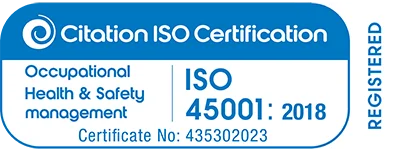There’s no denying that we’re well and truly into what history might look back upon and call ‘the digital age’. We spend hours on our laptops and computers, (with even more hours on our smartphones) and rely heavily on the internet for both valuable (Google Maps, online banking) and not-so-valuable (Pokemon Go) tasks. It’s no surprise that digital health is the next big thing. But what is digital health? In this blog we’re going to explore what’s already happening in the digital health arena, the associated benefits, and what’s on the horizon for this very exciting phenomenon.
What is digital health? It’s the intersection of medicine, wireless communication and mobile devices to deliver more efficient and effective healthcare
Digital health, far from being the latest tech buzzword, is where advances in genomics and medicine meet the latest mobile devices, wireless communication and cloud computing. And it doesn’t stop there: digital healthcare is comprised of much more, which digital health strategist and social entrepreneur, Paul Sonnier, summarises in this succinct and accessible six minute video. It’s not just the tech gurus and keynote speakers of this world that are moving towards digital health as a means of improving healthcare. The NHS has sought the counsel of digital health expert, Dr Robert Wachter, on introducing technology to our healthcare system. What’s more, the NHS aims to be paperless by 2020. If this is to happen, then there’s no option but for the health service to embrace all things digital.
What is digital health from a clinician’s point of view?
The NHS has already made inroads into the field of digital health. There are hospitals using tablets to record the vital signs of patients at their bedsides, with doctors accessing this data through another device at another location. The UpToDate app allows doctors to make more accurate diagnoses by pooling their training with the most recent scientific research; while electronic prescribing digitises prescriptions and vastly cuts down on patients being prescribed the wrong drugs. What’s more, the HSCIC has changed its name to NHS Digital, and the organisation hopes that this rebranding will help “build public recognition, confidence and trust” when it comes to moving over to new technological practices within the NHS.
Patients can enjoy more attentive healthcare and save time on GP visits
It’s not just clinicians that’ll benefit from a move to a more digitised NHS. Patients in intensive care could receive round-the-clock monitoring and advice without having to go to hospital. As reported in the Financial Times, Airedale Hospital in West Yorkshire has installed equipment in 300 care homes, and in 100 homes of patients with long-term conditions, to allow them to interact with their clinicians at the press of a button. Even healthy patients can benefit from a more digital NHS. The monitoring and maintenance of health could be conducted through apps instead of annual visits to the doctor. As Simon Stevens, chief executive of the NHS, states in the FT article, “the idea of booking appointments and physically turning up to GP surgeries for routine things is an alien concept.”
Educating both staff and patients is essential if digital health is to be embraced quickly
Digital health might bring countless benefits to the delivery of healthcare in the UK, but there are still hurdles to overcome. Both patients and NHS workers need to be persuaded of the benefits of moving away from processes that have become familiar. For example, patients must be reassured that their healthcare data is kept secure and anonymous. And even once digitised healthcare records are created, these need to be “tried and redesigned several times in a sometimes painful process before the full benefits are realised,” writes Candice Imison, director of policy at Nuffield Trust, in The Guardian.
The technology and devices that make digital health possible need their own management strategy
In the same article, Imison quotes Dr Wachter: “You need two keys to unlock this … one of them is that the work needs to be reimagined … the second is the adoption of technology.” One of the most important parts of a digital health system is hardware – mobile devices like tablets and laptops can be used to amass and access the vital data that will help clinicians deliver better healthcare and help patients monitor their own health. Once this technology has been adopted (it already has been in some hospitals) there needs to be a dedicated strategy to store and maintain these devices.
Still want a longer answer to the question, ‘what is digital health’? Then download our guide about what goes into creating a mobile device management strategy (MDM): Mobile Device Management in the NHS: What you need to know.
[button type=”warning” size=”lg” link=”http://bit.ly/2bhHSBF”] Get eBook [/button]




